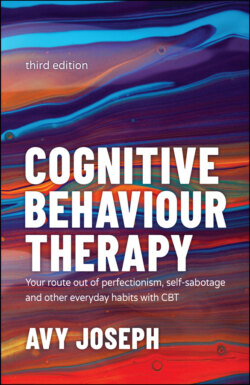Читать книгу Cognitive Behaviour Therapy - Avy Joseph - Страница 22
1. Inferences
ОглавлениеInferences are assumptions you make about the things that matter to you, which can be about yourself, others or about the world. For example, if your boss contradicted you during a meeting that was important to you, you might think, ‘he is undermining me’. Then you would be making an inference. This means that in that moment you have gone beyond the facts and made an assumption about what happened because it was significant to you. In this example you would have an emotional response: you may feel annoyed, concerned, anxious, angry or some other negative emotion.
The issue is whether your boss was undermining you or simply expressing a different opinion. In order to find out you would need to gather more information and evidence. Some of our inferences are accurate and some are not. In this example your inference has not been tested in reality.
If you had thought ‘he has a different opinion, he is not undermining me’ then your emotional response would be different.
Which of the following thoughts will lead to an emotion?
1 I saw a woman getting on a bus.
2 My workmates are ignoring me.
3 I'm a failure.
Thoughts 2 and 3 will lead to an emotional reaction. The second thought is an inference. It may or may not be true. Your colleagues have been ignoring you − they may just have been very busy with work. You need more information to assess the accuracy of conclusion. But if you conclude that you were being ignored, then you would have an emotional reaction.
The third thought also leads to an emotional response but it is more profound in its conclusion. ‘I'm a failure’ is an evaluative thought.
